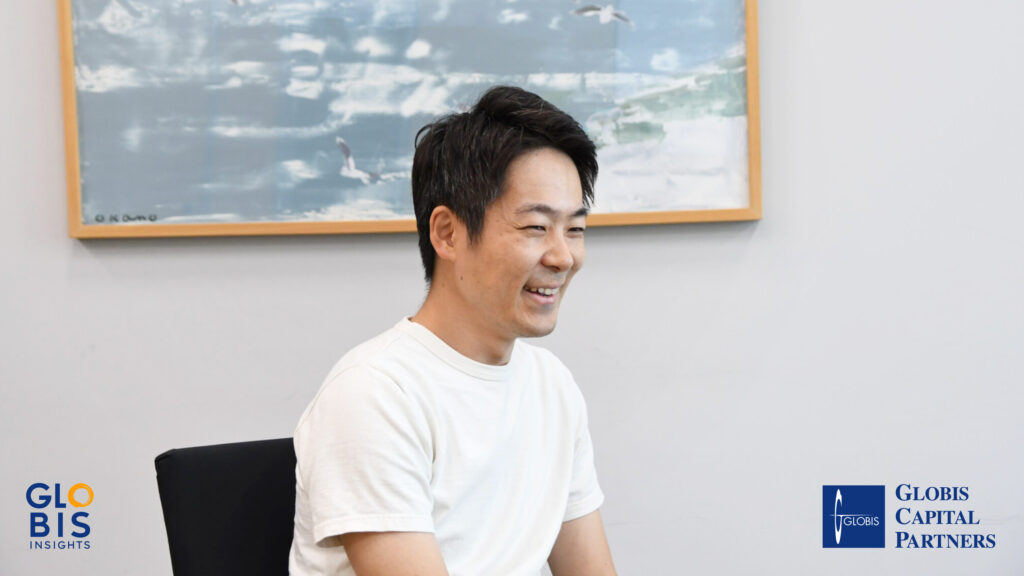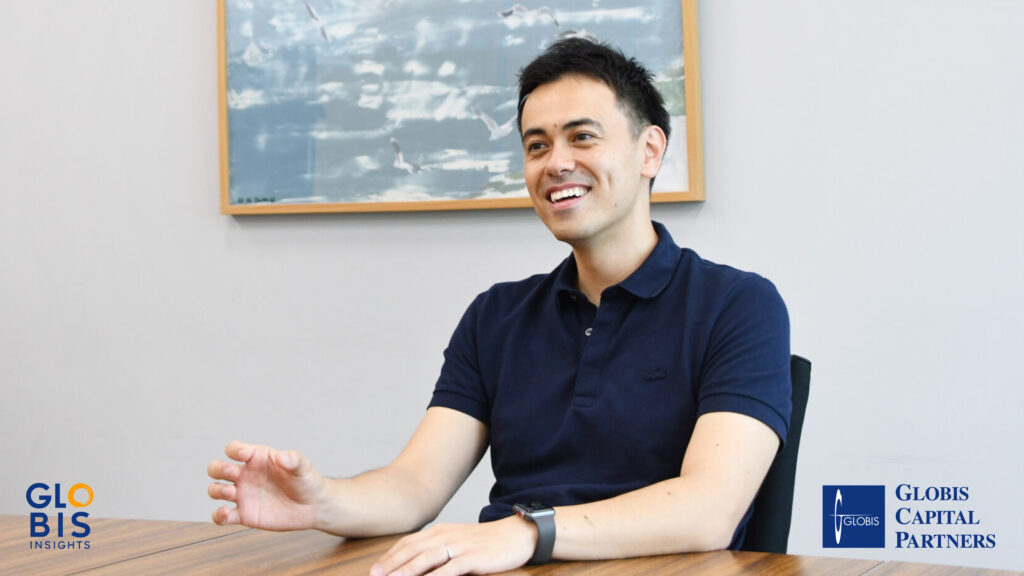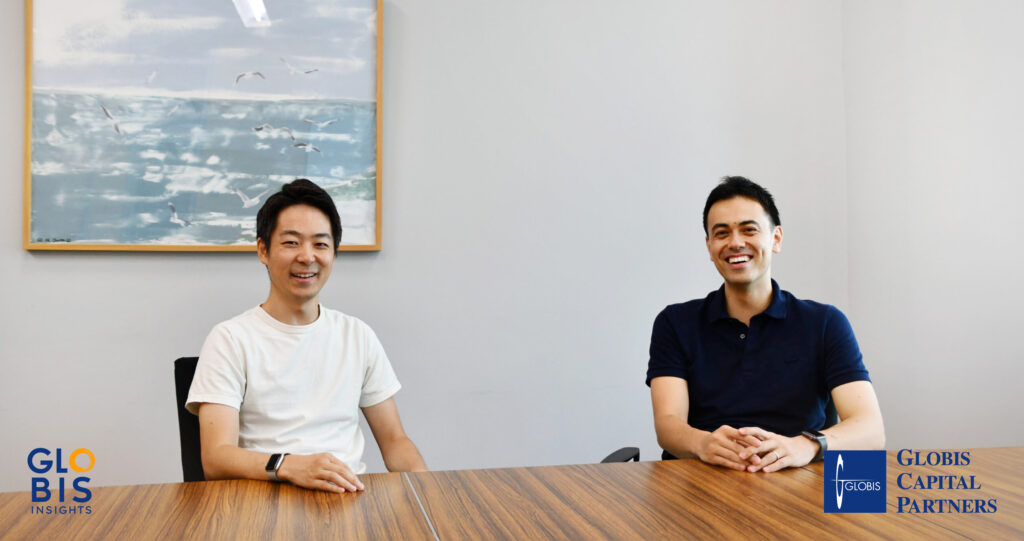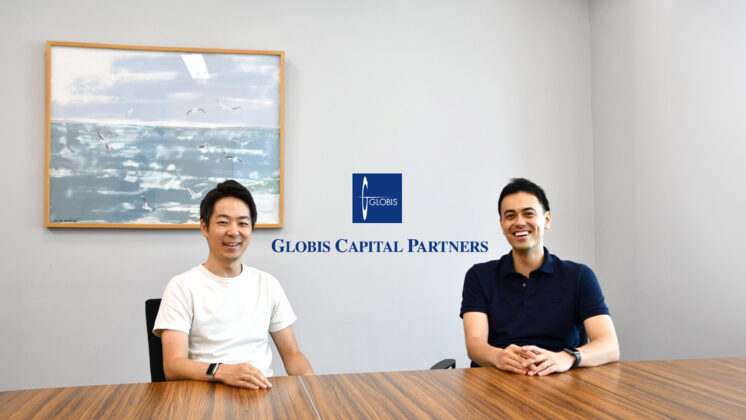In the past decade, the competition between venture capital funds to find the next unicorn startup has become increasingly fierce. But for the team at GLOBIS Capital Partners, seeing the potential in up-and-coming companies and entrepreneurs is a difficult but rewarding challenge. GLOBIS Chikenroku’s Yoshika Yoshimine interviewed two new general partners, Satoshi Fukushima and Emre Hidekazu Yuasa, about how they choose who to invest in and thoughts on the future.
Deciding When to Invest
Have there been any changes in the qualities you look for in entrepreneurs?
Fukushima: We’re more focused on the size of the impact an entrepreneur will make if they succeed, rather than their probability of success. We want to focus on supporting people who will create significant value for the world more than earning stable returns.
When it comes down to it, we want to focus on opportunity rather than risk. The key to this is how we can support the company at a time when discontinuous growth is required. I think about that before making an investment.
Yuasa: Another major change is the increase in the number of investors. Competition for investment in high-potential startups is becoming more intense. So even for us, we have to be the Venture Capital (VC) firm that is always chosen, and we want entrepreneurs to feel that our firm is always challenging people. Without that kind of mindset and action, we cannot attract entrepreneurs who want to change the world.
In the same way that we look for promising investment targets, entrepreneurs are also looking for promising business partners. That kind of relationship makes the ecosystem more competitive and takes it to a higher level.
A variety of foreign and domestic institutional investors, also known as Limited Partners (LPs), have made contributions to Fund 7. What kind of feedback have they given you?
Fukushima: The LPs are aware of changes in the market environment, both directly and indirectly. Our current long-term investors are also on board with the concept of Fund 7 and have increased their investments.

Passing the Baton to the Next Generation
What’s the difference between Fund 6 and Fund 7 for the LPs?
Yuasa: Most of them are existing investors, and thankfully, many of them have increased the size of their investments. I think this reflects high expectations for the Fund, as well as the trust we have cultivated with our track record of high performance.
Fukushima: Over the past ten years or so, we have gained the recognition of institutional investors through our major successes like our work with Mercari and Smart News, as well as through our social value contributions. As a result, we’re finding that more LPs are becoming interested in including startups in their potential investment portfolios. Through word of mouth from our LPs, we’re receiving support from investors who would have never been interested previously.
Nurturing Venture Capital Funding Through Three Generations
Yuasa: Something unique about Fund 7 is that it’s a “third generation” Fund. It was started by the founding partners, Mr. Hori and Mr. Kariyazono, then passed down to Mr. Takamiya and Mr. Imano, and now, Mr. Fukushima and I have had the baton passed to us. Typically, when a founder retires, the Fund dissolves with them. There aren’t many cases where investment funds have this kind of continuity.
Next Article
Will AI Enable Scrappy Startups to Take on Big Business?
Why maintain continuity?
Fukushima: We always focus on maximizing the return of our flagship fund. That said, we think it is important to adapt with the times, rather than just continuing full steam ahead. This flexibility is only possible thanks to the continuous support of our LPs. The update of our GP structure in Fund 7 is meant to signal our intention to adapt. I think it’s rare to find an organization that holds continuity in such high regard.
Yuasa: Because of our value system, we maintain a consistent hiring and training policy. We take the time to thoroughly nurture all of our associates from the ground up.
Mr. Hori and Mr. Karayazono are the founders of the company, but Mr. Takamiya and Mr. Imano started as associates and gradually rose through the ranks. In my role as a partner, I would like to continue to guide younger associates and create space for them when they become partners. I think that mindset is one of the reasons for the Fund’s generational continuity.
I understand that you will also continue to hire?
Yuasa: We plan to continue hiring two to three people every year, and while we value GCP’s common values and investment style, I would like each person to pursue their own image of what a capitalist is by making the most of their individual backgrounds.
Fukushima: As we expand our investment domain, we would like to attract people with even more diverse backgrounds, like engineers and former entrepreneurs.
Yuasa: If your hiring criteria is too narrow, you’ll only have candidates who have had past successes or strengths that are easy to evaluate. Without expanding what you’re looking for, it’s impossible to maintain a diverse organization that is adaptable.

The Best Part of VC Work
What is the most interesting thing about being a VC?
Yuasa: There’s a lot to enjoy. For a certain group of people, there’s nothing better. It is exciting to meet entrepreneurs on a daily basis and discuss challenges and issues with them. As an investor, you work hands on alongside entrepreneurs you’ve invested in for an average five to seven years. In that process, you might see a company that started with ten people grow to 500, and watch their offerings improve rapidly. Seeing that kind of growth brings me joy.
Fukushima: Not a day goes by that doesn’t stimulate me intellectually. Some things that pique my interest are new investment themes, experiencing new business models, and working with people who are seriously challenging themselves. It’s hard to find that kind of work outside of this industry.
What kind of person is suited for VC?
Yuasa: A VC’s job includes community building, networking, as well as sourcing and investing in good projects. But the way you go about it depends on the environment, your strengths, and your interests. You must be able to create your own path and grasp the clues.
Fukushima: You need an entrepreneurial spirit, which means you need to be able to take on challenges without obvious answers. In addition to that, I prefer someone who takes pride in their work. If you have the drive and vision to create the kind of world you want to see, you’d be well suited for this line of work.
Please tell us what you are excited about and your aspirations for the future.
Yuasa: In terms of organization level, I’m looking forward to taking on the challenge of creating a new global platform for the industry. I’d also like to create a framework that enables an unprecedented level of support in response to these challenges. As an individual, rather than just focusing on protecting the 27-year legacy of the GCP platform, I’d like to take on new entrepreneurial challenges. It may be a bit risky, but I want to reach for the stars.
Fukushima: I feel similar. One thing that won’t change, however, is to maintain the trust of the entrepreneurs and LPs we work with. GCP has made its mark investing in companies and in industries which already have proven track records, but I think we should take on new initiatives that are a departure from the status quo. I believe that GCP should continue to maintain that strong reputation, both as an individual platform, and a business partner.





